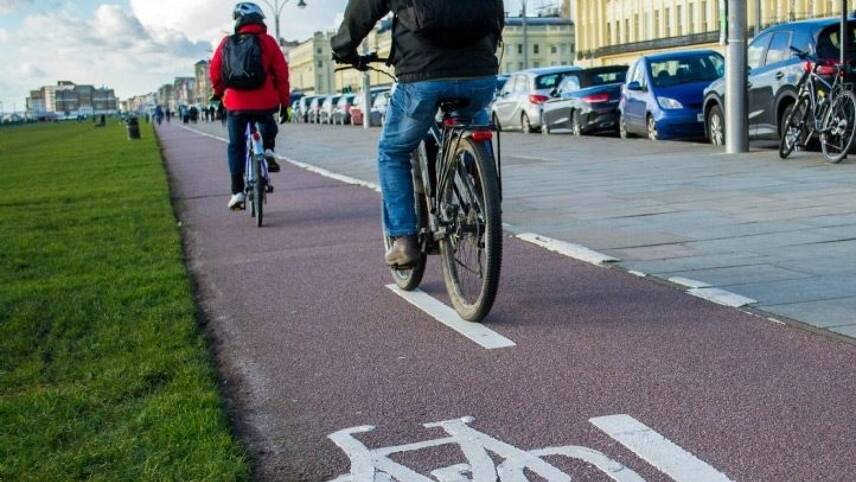Register for free and continue reading
Join our growing army of changemakers and get unlimited access to our premium content

The package will fund a string of initiatives, including improvements to cycling lanes and walking routes, bike rack roll-outs, cycling proficiency training and a national e-bike scheme.
Most tabloid coverage of the announcement is leading on a new bike repair scheme, whereby any member of the public in England can apply for a £50 voucher, to be redeemed at a business offering bike repair services. The Department for Transport (DfT) has not yet announced how many vouchers it will be issuing but is warning that the scheme is “limited”. It is hoped that the scheme will encourage people with disused bikes to use them again instead of choosing a car for short journeys.
Other newspapers are leading on new measures which will allow NHS GPs to prescribe cycling to patients. This scheme, whereby bikes for hire will be offered free-of-charge by surgeries, is being trialled in areas of England where public health is considered worse than average.
But elsewhere, the package includes a multi-million-pound plan to build protected cycle routes in towns and cities – 12 of which will receive “intensive funding” to create ultra-low-traffic, ultra-cyclist-friendly areas, dubbed ‘Mini Hollands’. Changes have also been made to standards for new cycling infrastructure, in a drive to ensure that new infrastructure is safer and higher-quality than the UK’s existing stock, with future changes planned for the Highway Code.
It also devolves funding to local authorities to create “school streets” – roads where car use is banned or limited during school hours – and to crack down on traffic offences. Metro Mayors are also being given more of an input in decision-making processes for key road networks.
Finally, the package includes a commitment for the DfT to roll out a national e-bike scheme by the end of 2020. Under the scheme, older people, those with pre-existing medical conditions affecting their fitness levels will be able to loan e-bikes at discounted rates.
Johnson called the package the Conservative Party’s “biggest and boldest plans yet to boost active travel” and said its overarching aim was to ensure that “everyone can feel the transformative benefits of cycling”.
“We’ve got a once in a lifetime opportunity to create a shift in attitudes for generations to come and get more people choosing to cycle or walk as part of their daily routine,” Transport Secretary Grant Shapps said.
Behaviour change
Between the start of lockdown on 23 March and mid-April, vehicle miles travelled (VMT) in the UK fell to the lowest level since records began, dropping by 56% in just one week.
Similar trends in travel were documented across mainland Europe, as citizens were urged to work from home and non-essential businesses were ordered to close operations.
Taking note of this, national governments and local authorities in mainland Europe, including those in Italy/Milan, have bolstered plans for cycling infrastructure and bike rental schemes.
There have been fears that emissions from transport – which overtook power generation to become the UK’s most-emitting sector in 2016 – would rebound post-lockdown without adequate government investment in active travel and public transport. Indeed, the first half of June saw a rapid increase in emissions and air pollution attributable to road transport.
Johnson’s new measures aim to ‘lock-in’ reductions in emissions and air pollution realised as a result of the pandemic. He and his Ministers are now facing calls to develop an equally ambitious package for public transport.
Among the organisations putting pressure on Ministers is Greener Journeys, which this week released a cost-benefit analysis of investment in local bus services post-lockdown. Carried out in partnership with KPMG, the research shows how £2bn of investment from central Government would generate 425 million additional bus journeys outside of Greater London each year – an increase of 20%.
Every £1 of that investment would generate £4.48 in wider social, economic and environmental benefits, the research states, with cost savings likely to be generated for the NHS and in the form of conserved natural capital.
The DfT is currently producing a national bus strategy and has said that the policy package will be published by the end of 2020. It is also continuing work on its roadmap for decarbonising “every single mode of transport” in line with the national 2050 net-zero target.
Sarah George


Please login or Register to leave a comment.